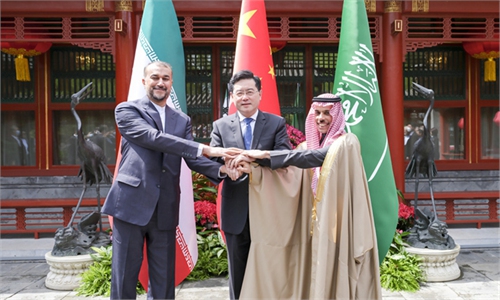ARTS / CULTURE & LEISURE
University disciplines optimization necessary in new industry trends

College students apply for jobs at a job fair in Nanjing, capital of East China's Jiangsu Province over the weekend. Thousands of Chinese college and university students are expected to graduate and enter workforce this summer. Photo: IC
China has issued a plan to adjust 20 percent of university disciplines and specialties, clarifying that a batch of new disciplines that can adapt to new technology, industries and business models will be established, and those that are not a good fit with current social and economic development will be eliminated. This is a big move to cultivate high-caliber professionals based on optimized disciplines.In order to achieve high-quality education, the plan aims to guide and standardize the establishment of disciplines and specialties. Specifically, the state will shift its focus to new arts, engineering, medicine and agriculture disciplines as well as basic disciplines that can meet major strategic needs and have international influence.
Not long ago, a research analysis of industrial development and talent demand at the Shanghai World Skills Competition revealed 52 "future occupations" in six major areas, including 5G plus industrial internet, digital finance, digital marketing and new energy automobiles. Among them, ChatGPT once again triggered heated discussion on whether it would cause some people to lose jobs. This signifies that the adjustment of disciplines based on emerging industries is necessary for professionals to adapt to new technological development and career requirements.
However, someone doubted whether this is necessary, questioning the wisdom of having university disciplines, which should focus on basic knowledge and skills, follow emerging industries that could prove to be short-lived.
The current endeavor is a good trial to break the stereotype in the transition between university education and employment. As the plan has set a course, it is up to colleges to design their own programs to both hone students' basic knowledge and inspire their interest in new technology.
The setting of university disciplines and specialties is known as the "root of education," but it is not an easy task. In the next step, more walks of life should work together to allow China's higher education to better serve students, the country's social and economic development.


